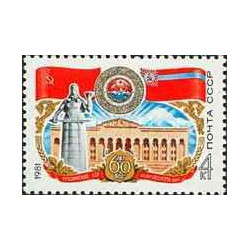- جدید
- ناموجود



توجه : درج کد پستی و شماره تلفن همراه و ثابت جهت ارسال مرسوله الزامیست .
توجه:حداقل ارزش بسته سفارش شده بدون هزینه پستی می بایست 180000 ریال باشد .
توجه : جهت برخورداری از مزایای در نظر گرفته شده برای مشتریان لطفا ثبت نام نمائید.
| João Guimarães Rosa | |
|---|---|
 |
|
| 3rd Academic of the 2nd chair of the Brazilian Academy of Letters | |
| In office 16 November 1967 – 19 November 1967 |
|
| Preceded by | João Neves da Fontoura |
| Succeeded by | Mário Palmério |
| Personal details | |
| Born | 27 June 1908 Cordisburgo, Minas Gerais, Brazil |
| Died | 19 November 1967 (aged 59) Rio de Janeiro, Guanabara, Brazil |
| Nationality | Brazilian |
| Alma mater | Federal University of Minas Gerais |
| Occupation | Author, novelist, short story writer |
| Profession | Diplomat |
João Guimarães Rosa (Portuguese: [ˈʒwɐ̃w ɡimaˈɾɐ̃js ˈʁɔzɐ]; 27 June 1908 – 19 November 1967) was a Brazilian novelist, short story writer and diplomat, widely regarded as one of the greatest writers of Brazilian literature.
Rosa published four books of short story in his lifetime, all of them revolving about life in the sertão, but addressing themes of universal literature and of existential nature. Rosa only wrote one novel, Grande Sertão: Veredas (known in English as The Devil to Pay in the Backlands), a revolutionary text for its blend of archaic and colloquial prose and frequent use of neologisms, taking inspiration from the spoken language of the Brazilian backlands. For its profoundly philosophical themes, the critic Antonio Candido described the books as a "metaphysical novel". It is often considered to be the Brazilian equivalent of James Joyce's Ulysses.[1][2][3] In a 2002 poll by the Bokklubben World Library, "Grande Sertão: Veredas" was named among the best 100 books of all time.[4]
تشکر نظر شما نمی تواند ارسال شود
گزارش کردن نظر
گزارش ارسال شد
گزارش شما نمی تواند ارسال شود
بررسی خود را بنویسید
نظر ارسال شد
نظر شما نمی تواند ارسال شود

check_circle
check_circle















